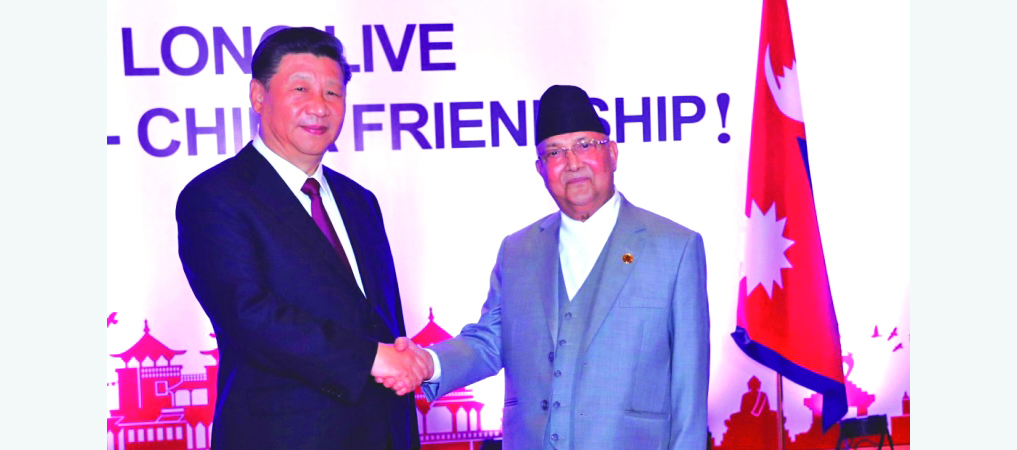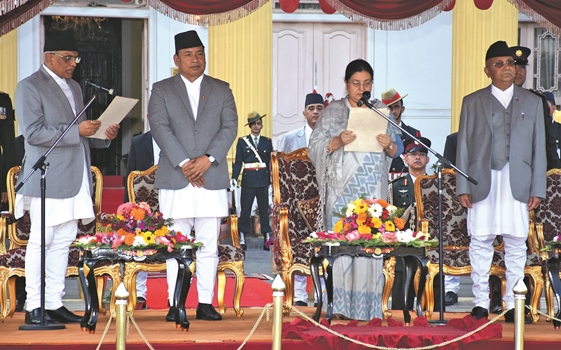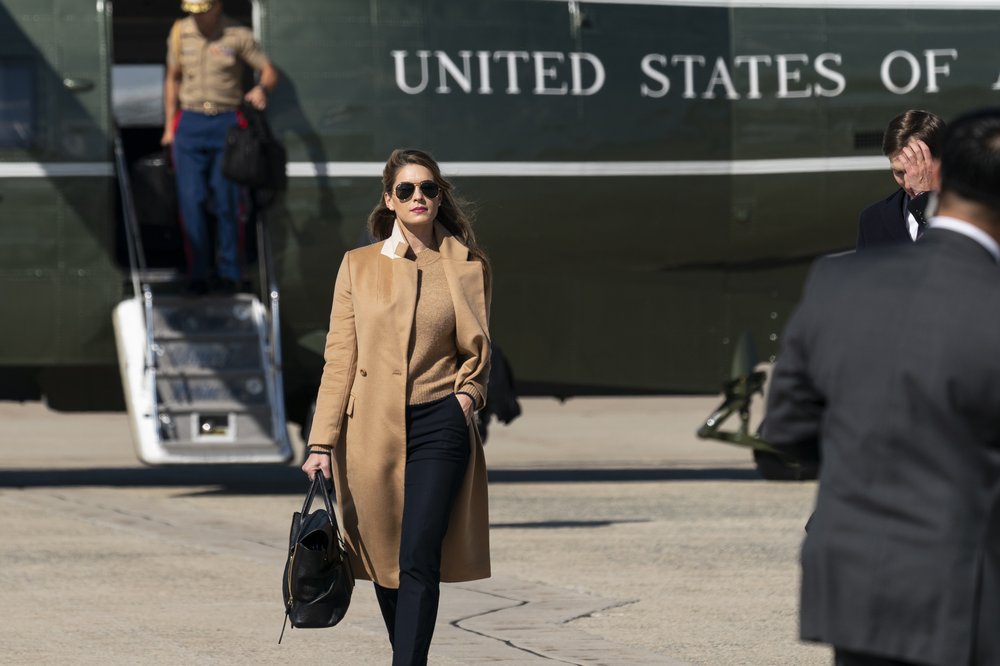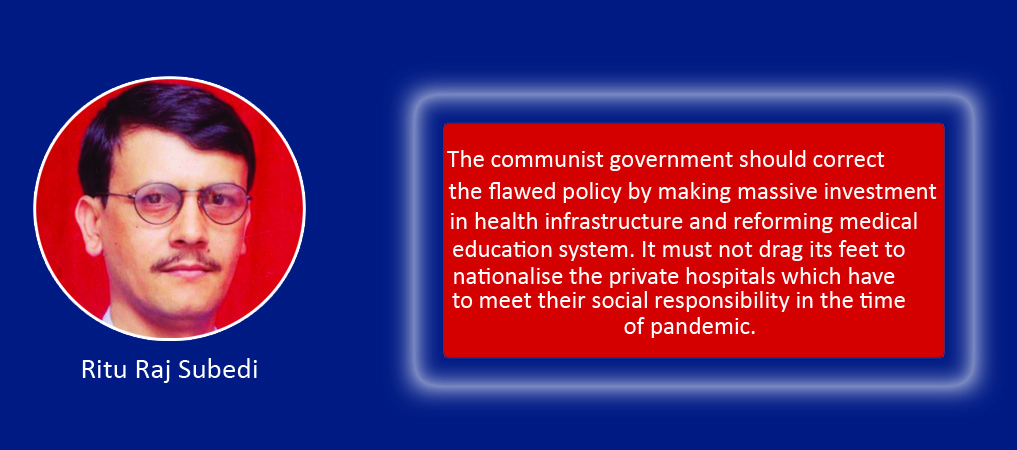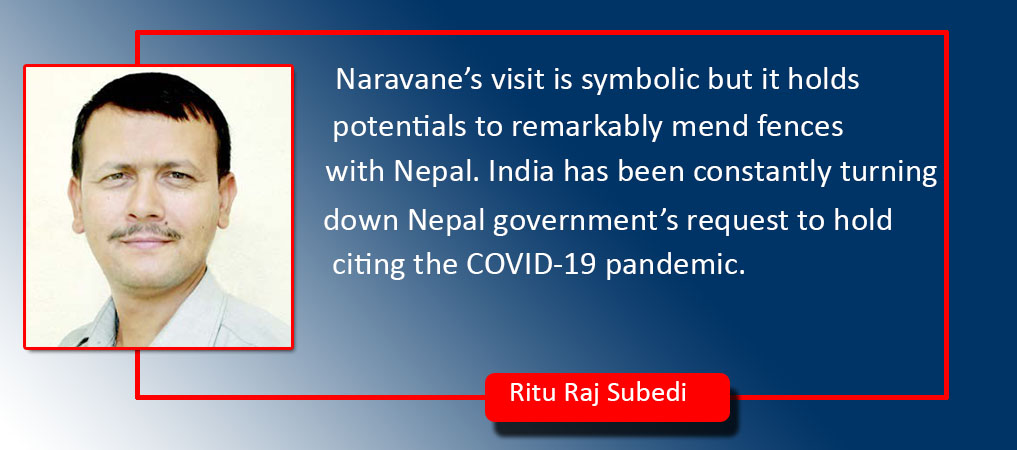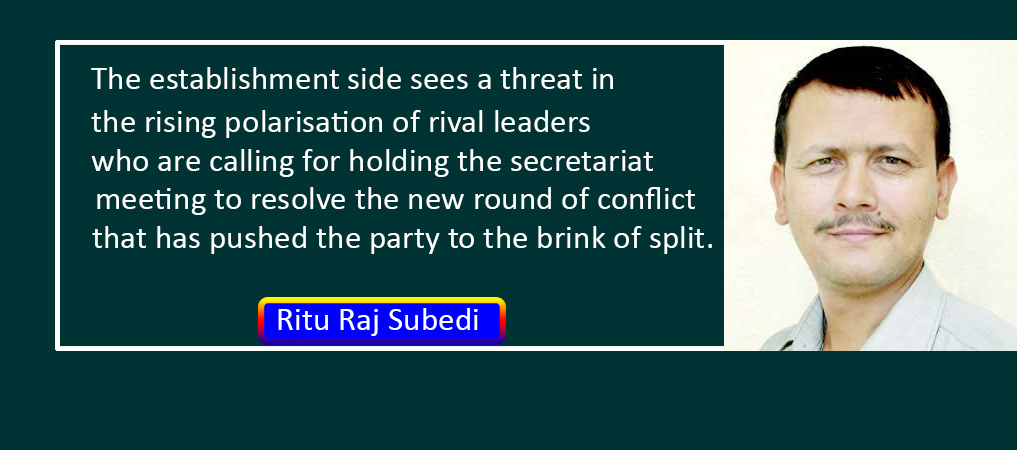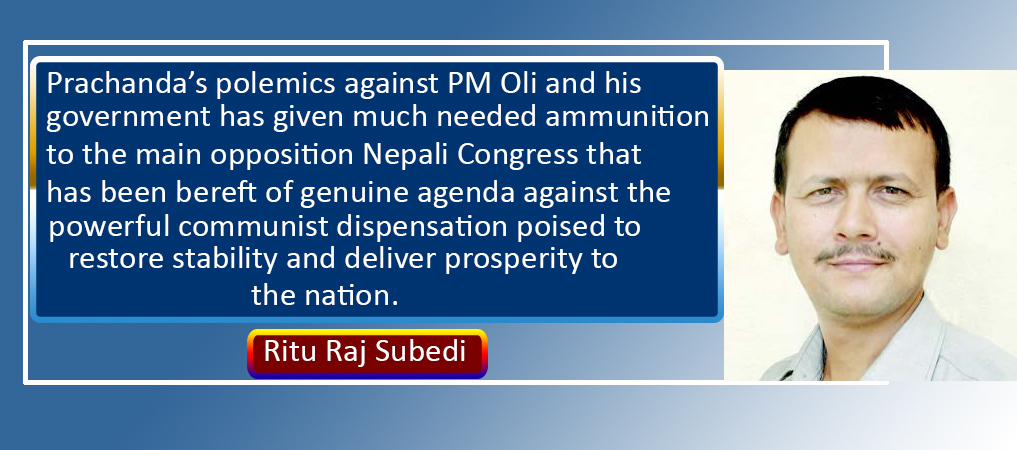Avoiding Geopolitical Pitfalls
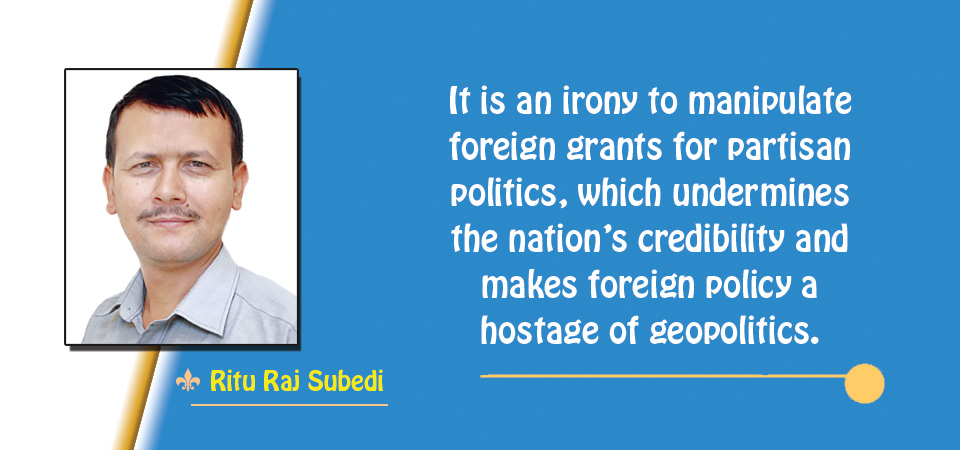
Nepal’s metaphoric identity as a ‘yam between two boulders,’ coined by its founding father Prithvi Narayan Shah, continues to be veritable to this day despite all seismic internal and external upheavals spanning two centuries and a half. There were efforts to deconstruct this sagacious saying by many phony intellectuals and political radicals. But the popular adage reminds the rulers of the geopolitical sensitivity of Himalayan nation constrained and protected by complex topography. Even in an era marked by breakdown of physical barriers and the growing interconnectedness among the nations, the ‘yam’ image provides practical foreign policy insight to fend off deleterious foreign infringement and undue interests in the nation that continues to strive asserting her sovereignty and right to self-determination even in the 21st century.
Nepal’s current geography was conditioned by the Sugauli Treaty (1816) and the Treaty of Betrawati (1792). The Sugauli Treaty forced Nepal to cede the vast swath of southern territory to the erstwhile British East India Company while the Betrawati Treaty stopped Gorkhalis’ military excursions on the northern front. Although these treaties have shrunk the national geopolitical space in the region and beyond to a great extent, they highlight the nation’s military valour and diplomatic competence to deal with the mighty British and Chinese Empires in the past centuries. The current bunch of political leaders should take their cue from these historical episodes while tackling any tricky geopolitical rivalry frequently played out in the nation’s domestic turf and debasing its strategic pivot of history.
Determinants of geopolitics
Today geography is not a sole determiner of geopolitics – international relations. It has acquired new dimensions shaped by a multitude of elements – politics, economy, culture, trade, foreign aid, loans and investment, technology, climate change, consultancy, diplomacy and other forms of soft and hard powers. Nepal boasts of a glorious history of independence - she was never colonised throughout modern history. But her independence has been eroded by uber-dependency from politics to economy to technology to knowledge. Nepal’s modernisation journey started from the 1951 political change, but her dependency and steady loss of policy making capacity also grew at an alarming pace since then.
The external factors have not only influenced the major political changes but also guided the economic policy and development discourse of Nepal. Several economic policies from modernisation to neoliberal one adopted in 1991 did not only dent policy autonomy but also sowed the seeds of deindustrialisation process, forcing thousands of Nepali youths to seek their future in the alien lands, the entrenchment of sovereignty of people in the constitution of Nepal notwithstanding. With the rapid economic globalisation and rise of multinational companies, the sovereignty and capacity of nations, especially the poor and small ones like Nepal’s have further been compromised. These trends have obviously diminished the power of the nation to execute diplomacy in the broader interest of the people and the state.
The frequent changes of regimes and political systems have hampered the efforts to gain stability, democratic order, good governance and desired prosperity. The chronic instability has bred the ground for unwarranted involvement of foreign powers in the domestic affairs. A negative trait of unstable society and quarrelsome politics is that the key political actors often flounder and fail to chart out and implement unanimous foreign and economic policy based on the spirit of constitution. This fuels bureaucratic lapses, political inertia and social unrest, hitting the nation’s sovereignty, development choice, prospect of job creation and service delivery. When the discriminatory agreements are imposed on the populace, they give rise to the patriotic sentiments which are mostly abused by the pseudo nationalist leaders for their parochial interest.
The chaotic politics deprive the nation’s leaders of confidence and popular legitimacy essential to effectively negotiate and ink deals with other nations on equal footing. As a result, geopolitics creeps into national politics, sharply polarising the political parties, legal fraternity, civil society and media. For example, the 1950 Treaty of Peace and Friendship between Nepal and India has always been a contested subject in the country. It has continued to divide the parties and disrupt ties with the southern neighbour. When the national actors put up a unified position as seen in their consensus on EPG report and inclusion of Nepali territories of far-west in the new map, the chances remain high to resolve the long-running controversy, thereby revising it in the shared and equal interest of both nations.
At the moment, the country has been thrust into the debate of the Millennium Challenge Corporation (MCC). The US$630 million project, which includes a $500 million US grant and $130 million investment from Nepal, aims to build power transmission lines and upgrade strategic roads The ruling Nepali Congress is in favour of endorsing it from the House.
Coherent stance
The government has formed a three-member committee under senior leader of Unified Socialist Jhalanath Khanal, with Minister for Communication and Information Technology Gyanendra Bahadur Karki and Maoist Centre leader Narayan Kaji Shrestha as its members - to study and suggest for the amendment to the compact. PM Deuba wants to endorse the MCC from the parliament at the earliest but Maoist Centre chair Pushpa Kamal Dahal Prachanda wants to defer it until the local polls to be held in May this year.
Meanwhile, the main opposition UML has not come up with a clear position on MCC. As media reports go, its chair KP Sharma Oli wants to use MCC to dismantle the current five-party coalition. The leaders need to be engaged in broad-based consultation for endrosing the signigicant
American grant.
(The author is Deputy Executive Editor of this daily.)
Recent News

Do not make expressions casting dout on election: EC
14 Apr, 2022
CM Bhatta says may New Year 2079 BS inspire positive thinking
14 Apr, 2022
Three new cases, 44 recoveries in 24 hours
14 Apr, 2022
689 climbers of 84 teams so far acquire permits for climbing various peaks this spring season
14 Apr, 2022
How the rising cost of living crisis is impacting Nepal
14 Apr, 2022
US military confirms an interstellar meteor collided with Earth
14 Apr, 2022
Valneva Covid vaccine approved for use in UK
14 Apr, 2022
Chair Prachanda highlights need of unity among Maoist, Communist forces
14 Apr, 2022
Ranbir Kapoor and Alia Bhatt: Bollywood toasts star couple on wedding
14 Apr, 2022
President Bhandari confers decorations (Photo Feature)
14 Apr, 2022



